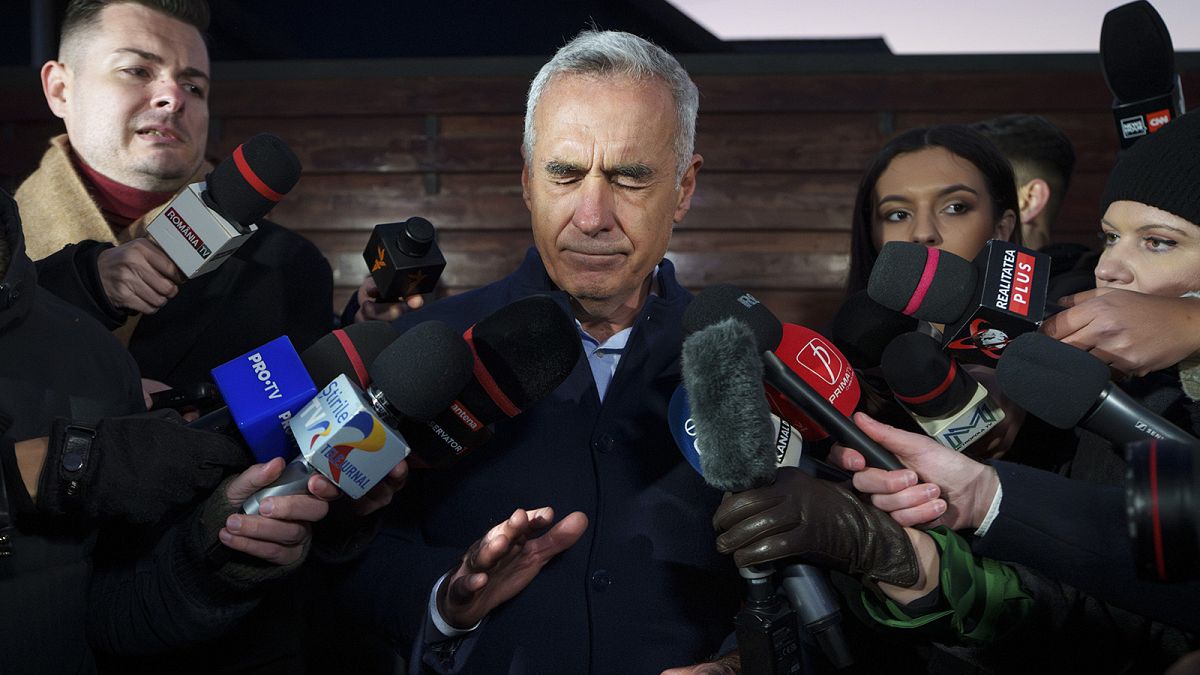Romania gives Europe’s digital police their first big test
The shock victory of an ultranationalist in Romania's presidential election puts the EU's Digital Services Act in the spotlight.
BRUSSELS — The European Union’s new social media rules are being tested to the limit by allegations of an orchestrated TikTok campaign to rig Romania’s presidential election.
Ultranationalist Călin Georgescu’s shock win in the first round of the Romanian election put pressure on the European Commission to show that it can use its new powers to clamp down on online content to look at how Georgescu’s social media account got a vital last-minute boost. Regulators can now fine companies up to 6 percent of their global annual turnover or even temporarily block their services in the EU.
Brussels’ response for now? We’re looking into it.
The Commission, which oversees TikTok because of the sheer size of the platform, faces the delicate balancing act of proving that its content-moderation rulebook — the Digital Services Act — works while avoiding being accused of jumping to conclusions or interfering with national elections.
The Romanian case adds to the EU’s efforts to wrangle X owner, free speech advocate and Donald Trump protégé Elon Musk, who has publicly defied the EU’s social media rules.
If Brussels can’t show that it can tackle these key issues, the credibility of the EU’s flagship social media law could crumble — just when lawmakers and NGOs expect the rules to begin to bite.
The Commission is “kind of tiptoeing,” said Eliška Pírková, who covers the DSA at campaign group AccessNow.
Sore point
Georgescu’s stunning win quickly saw the Commission facing the heat.
Just two days after the election, even as details about Georgescu’s late TikTok surge were still scarce, the Romanian audiovisual regulator asked the Commission to probe the video-sharing app. It alleged that TikTok’s algorithm amplified content that “disproportionally favoured one candidate,” it detailed in a statement shared with POLITICO.
This didn’t immediately trigger a probe from the Brussels-based authority. Instead, it expanded an older set of questions to TikTok with new queries about the platform’s system to recommend content to users and the risks of malicious actors exploiting the app.
It also called TikTok, Facebook parent Meta, Google, Microsoft and X in for a chat.
The Commission’s cautious approach starkly contrasted with fury from European lawmakers about how TikTok handled the election, especially during a hearing with the company’s executives about a week after Georgescu’s win.

“There’s no ability to intervene quickly in these situations, and the platforms clearly don’t seem to care,” European lawmaker Kim Van Sparrentak from the Greens lashed out.
Only minutes later, the Commission’s Rita Wezenbeek, boss of the platforms directorate, said the EU executive had not formed an opinion yet.
The ultimate sore point is the speed of DSA enforcement which doesn’t come close to matching the rapid spread of social media.
Until now, only one platform, Musk’s X, has been warned that it may breach the EU’s social media law.
That is “rather disappointing,” said Pírková, who said that she nevertheless understood the reasons for the slower pace.
“The Commission is very cautious, because first of all, the investigation has to have enough evidence, enough data that were collected with sound methodologies,” she said.
The EU executive is particularly fearful of being accused of meddling with national elections.
Former Commissioner Thierry Breton was accused of interfering with the U.S. elections in August when he reminded Musk of EU requirements to comply with the law ahead of an interview with Donald Trump, now the U.S. president-elect.
Quick fix
The EU’s social media law was also never intended to act as a quick fix for occurrences like the Romanian election.
Calls for a probe into TikTok have zoned in one article in the law — Article 34 — mandating that platforms like TikTok assess so-called systemic risks.
One systemic risk is the damage that recommender systems, like TikTok’s algorithm, could do to public discourse and elections. But any probe and any finding that TikTok breached the law would do nothing to change the political reality after the Romanian vote.
Yet, the current outcry from the Romanian election could pave the way for closer monitoring of future polls.
Greens lawmaker Alexandra Geese, who co-negotiated the digital rulebook, said the “Commission should learn from this experience and clearly lay out which interim measures can be taken against platforms during an election.”
TikTok has now been ordered to store any data on national elections in the EU until March of next year.
This means the order, necessary to pave the way for any future investigation, will be in place when Germany goes to the polls on Feb. 23.
What's Your Reaction?


















































